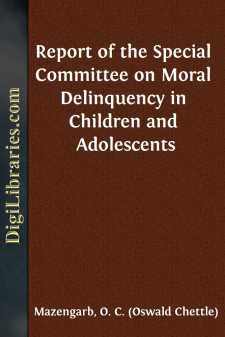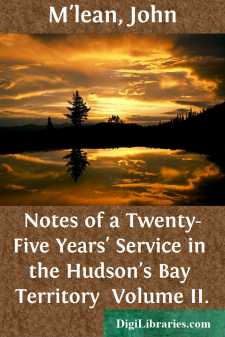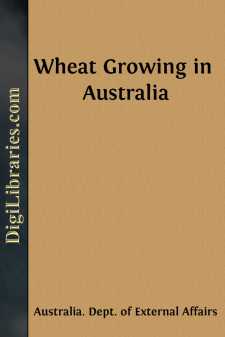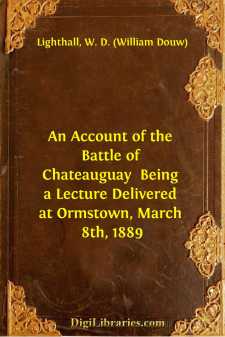Non-Classifiable
- Non-Classifiable 1768
Non-Classifiable Books
Sort by:
WHAT IS COPYRIGHT? Copyright is a form of protection provided by the laws of the United States (title 17, U.S. Code) to the authors of "original works of authorship", including literary, dramatic, musical, artistic, and certain other intellectual works. This protection is available to both published and unpublished works. Section 106 of the 1976 Copyright Act generally gives the owner of...
more...
After two years' silence and patience, and notwithstanding my resolutions, I again take up my pen: Reader, suspend your judgment as to the reasons which force me to such a step: of these you can be no judge until you shall have read my book. My peaceful youth has been seen to pass away calmly and agreeably without any great disappointments or remarkable prosperity. This mediocrity was mostly owing...
more...
by:
Alexander Whyte
CHAPTER I—THE BOOK ‘—the book of the wars of the Lord.’—Moses. John Bunyan’s Holy War was first published in 1682, six years before its illustrious author’s death. Bunyan wrote this great book when he was still in all the fulness of his intellectual power and in all the ripeness of his spiritual experience. The Holy War is not the Pilgrim’s Progress—there is only one Pilgrim’s...
more...
by:
William Penn
CHAP. I. Containing a brief account of divers dispensations of God in the world, to the time he was pleased to raise this despised people, called Quakers. Divers have been the dispensations of God since the creation of the world, unto the sons of men; but the great end of all of them, has been the renown of his own excellent name in the creation and restoration of man: man, the emblem of himself, as a...
more...
I. Preliminary Observations (1) Sensational Press Reports In the second week of July 1954 various newspapers throughout the Dominion featured reports of proceedings in the Magistrate's Court at Lower Hutt against youths charged with indecent assault upon, or carnal knowledge of, girls under 16 years of age. The prosecuting officer was reported as saying that: The police investigations revealed a...
more...
by:
John M'lean
CHAPTER I. JOURNEY TO NORWAY HOUSE. I started from Stuart's Lake on the 22d of February, and arrived at Fort Alexandria on the 8th of March. Although the upper parts of the district were yet buried in snow, it had disappeared in the immediate neighbourhood of the establishment, and everything wore the pleasing aspect of spring. Mr. F—— was about to remove to a new post he had erected on the...
more...
by:
John Burroughs
THE LONG ROAD I The long road I have in mind is the long road of evolution,—the road you and I have traveled in the guise of humbler organisms, from the first unicellular life in the old Cambrian seas to the complex and highly specialized creature that rules supreme in the animal kingdom to-day. Surely a long journey, stretching through immeasurable epochs of geologic time, and attended by...
more...
WHEATGROWING IN AUSTRALIA. With the growing scarcity of foodstuffs that has become a world-wide feature of the last few years, the wheatgrower is one of the most important necessities in civilisation. He has prospered in the past, but the future holds still greater and richer prospects. And in no country in the world are those prospects brighter than in the Commonwealth of Australia. The world's...
more...
THE BATTLE OF CHATEAUGUAY. The War of 1812 has been called by an able historian "the afterclap of the Revolution." The Revolution was, indeed, true thunder—a courageous and, in the main, high-principled struggle. Its afterclap of 1812 displayed little but empty bombast and greed. In the one, brave leaders risked their lives in that defence of rights which has made their enterprise an epoch...
more...
by:
Izaak Walton
INTRODUCTION [Sidenote: Introduction] I have been persuaded, by a friend whom I reverence, and ought to obey, to write the Life of RICHARD HOOKER, the happy Author of Five—if not more—of the eight learned books of "The Laws of Ecclesiastical Polity." And though I have undertaken it, yet it hath been with some unwillingness: because I foresee that it must prove to me, and especially at this...
more...











